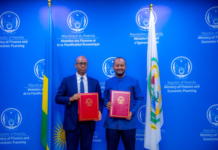Grain SA supports the new policy direction outlined in the 2025/26 Budget Vote Speech by the Honourable Minister of Agriculture and welcomes the strategic shift toward a more focused and practical agricultural policy framework. The realignment of the Department of Agriculture to exclusively serve the sector presents a renewed opportunity for targeted implementation and meaningful impact.
We are particularly encouraged by the Minister’s prioritisation of biosecurity as a national imperative. Grain SA has long advocated for enhanced disease surveillance and coordinated outbreak responses, not only to safeguard local production but also to secure and expand critical export markets. It is important to note that livestock biosecurity has a direct bearing on the grain and oilseeds sector, given the livestock industry’s role as a major consumer of feed inputs. Investment in livestock health infrastructure ultimately strengthens the entire agricultural value chain.
The renewed focus on a modern and progressive legislative environment, including amendments to the Fertilizers, Farm Feeds, Agricultural Remedies and Stock Remedies Act (Act 36), is welcomed. We urge that this legislative review prioritise the protection of essential inputs currently available locally and supports faster access to innovative technologies that enhance productivity and sustainability. In addition, the development of a regulatory framework for new breeding techniques is crucial if South Africa is to maintain global competitiveness in plant genetics and sustainable crop development.
Grain SA also welcomes the emphasis on market access and trade facilitation, including the expansion of access to Asia and the Middle East, and the defence of existing agreements such as AGOA and the EPA. However, we must reiterate the urgent need for stronger protective measures for local wheat producers, particularly considering rising volumes of subsidised imports. Coordinated efforts across government departments are essential to address the legislative and policy disconnects that undermine local competitiveness.
While the focus on climate change adaptation and climate-smart agriculture is necessary and applauded, Grain SA remains concerned that multi-peril crop insurance was not sufficiently addressed in the speech. Affordable and accessible insurance products remain a cornerstone of climate resilience and are vital to creating a level playing field with global counterparts who benefit from state-supported schemes.
We also acknowledge the Minister’s support for blended finance mechanisms and the commitment to expand access to funding for youth, women, and climate-smart initiatives. These mechanisms play a key role in enabling inclusive growth and transformation, particularly where investment is needed most—on farms, in R&D, and in rural economies.
Research Alignment and Opportunities
The 2025/26 Budget Vote reflects a strong and encouraging commitment to research that will positively impact the grain farming community and national food security. Grain SA’s research strategy aligns with the Department’s commitment to impactful and future-oriented research. The Department’s prioritisation of biosecurity – through the establishment of a Biosecurity Council, National Biosecurity Compact, and investments in surveillance and infrastructure – offers critical opportunities for research to guide prevention strategies, outbreak modelling, and rapid response planning. These developments are particularly relevant for grain producers, given the interconnected risks to input supply chains and animal feed markets.
The focus on climate adaptation and resilience also strongly complements Grain SA’s ongoing research into conservation agriculture, soil health, and drought-resilient cultivars. The implementation of the Climate Change Adaptation and Mitigation Plan offers a chance to bridge national policy with on-farm innovation, field trial data, and scalable practices to manage resource use efficiently and support producer sustainability.
We commend the Department’s continued support for public-private partnerships as an engine for applied research impact. Grain SA’s collaboration with the Department of Science, Technology and Innovation (DSTI) through the Agricultural Bio-economy Innovation Partnership Programme (ABIPP) demonstrates the value of collaborative innovation – from cultivar development to precision agriculture and sustainable production systems. Our strategic partnership with the Agricultural Research Council (ARC) is similarly vital, providing the scientific foundation needed to meet current and future challenges in the grains sector.
The integration of agricultural colleges into the higher education system, alongside the promotion of agri-tech skills development, aligns with our long-term vision for NAMPO-Tech. This new Grain SA initiative will focus on developing future-ready agricultural professionals equipped to support innovation in grain production, mechanisation, and data-driven decision-making. We view the Department’s education and training objectives as a strong enabler of our efforts to position NAMPO-Tech as a centre of excellence in practical training and agricultural innovation








